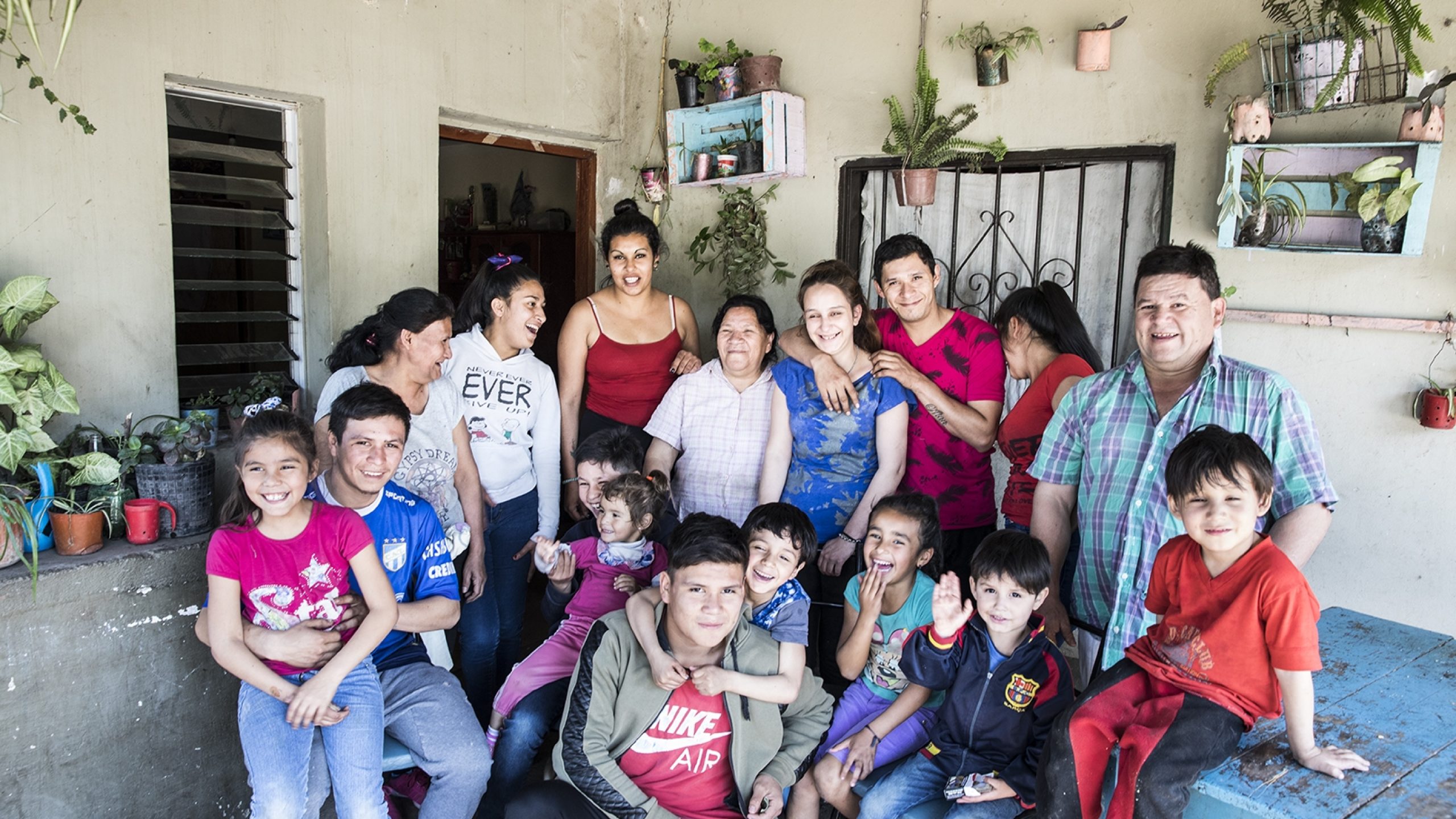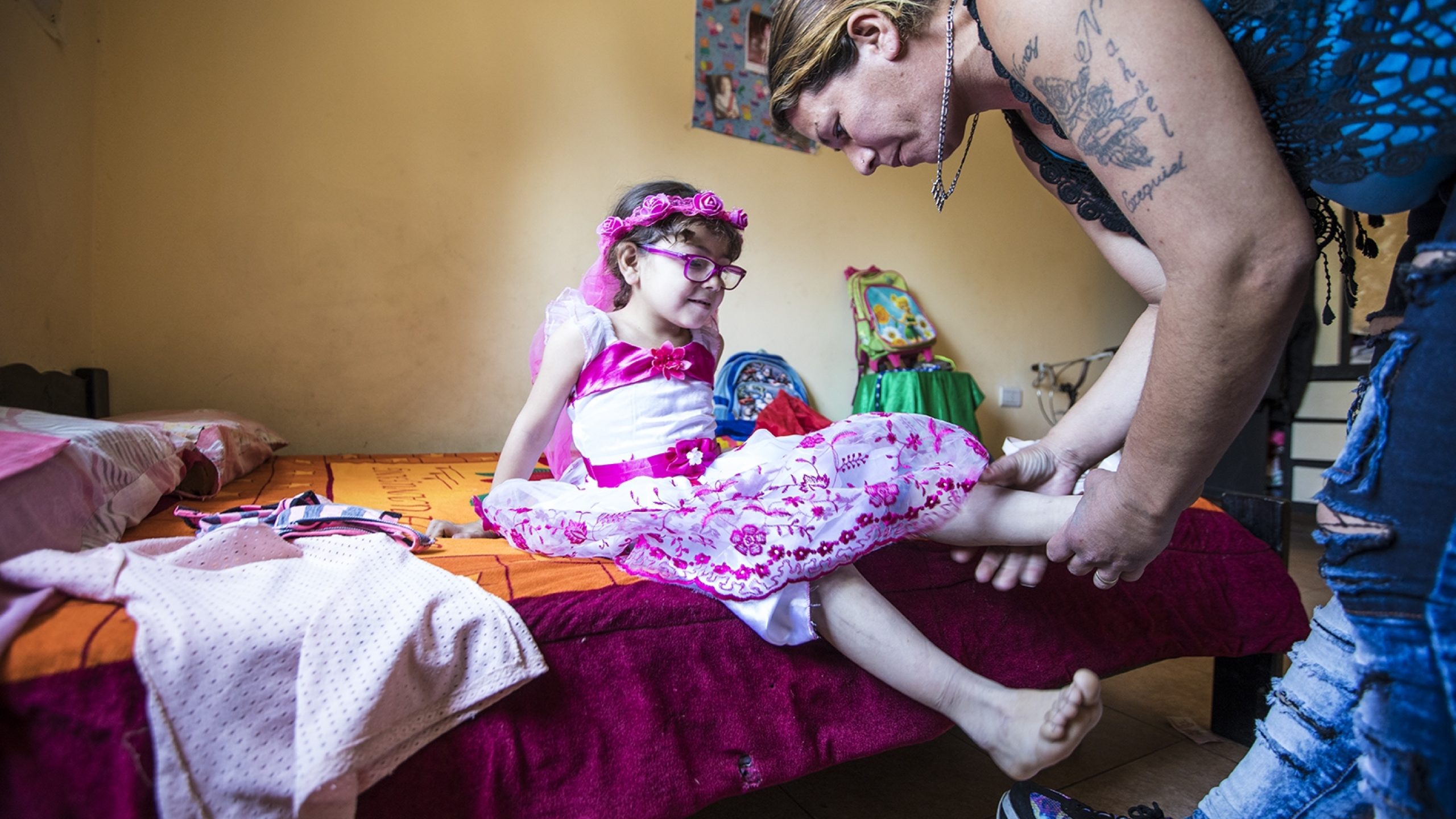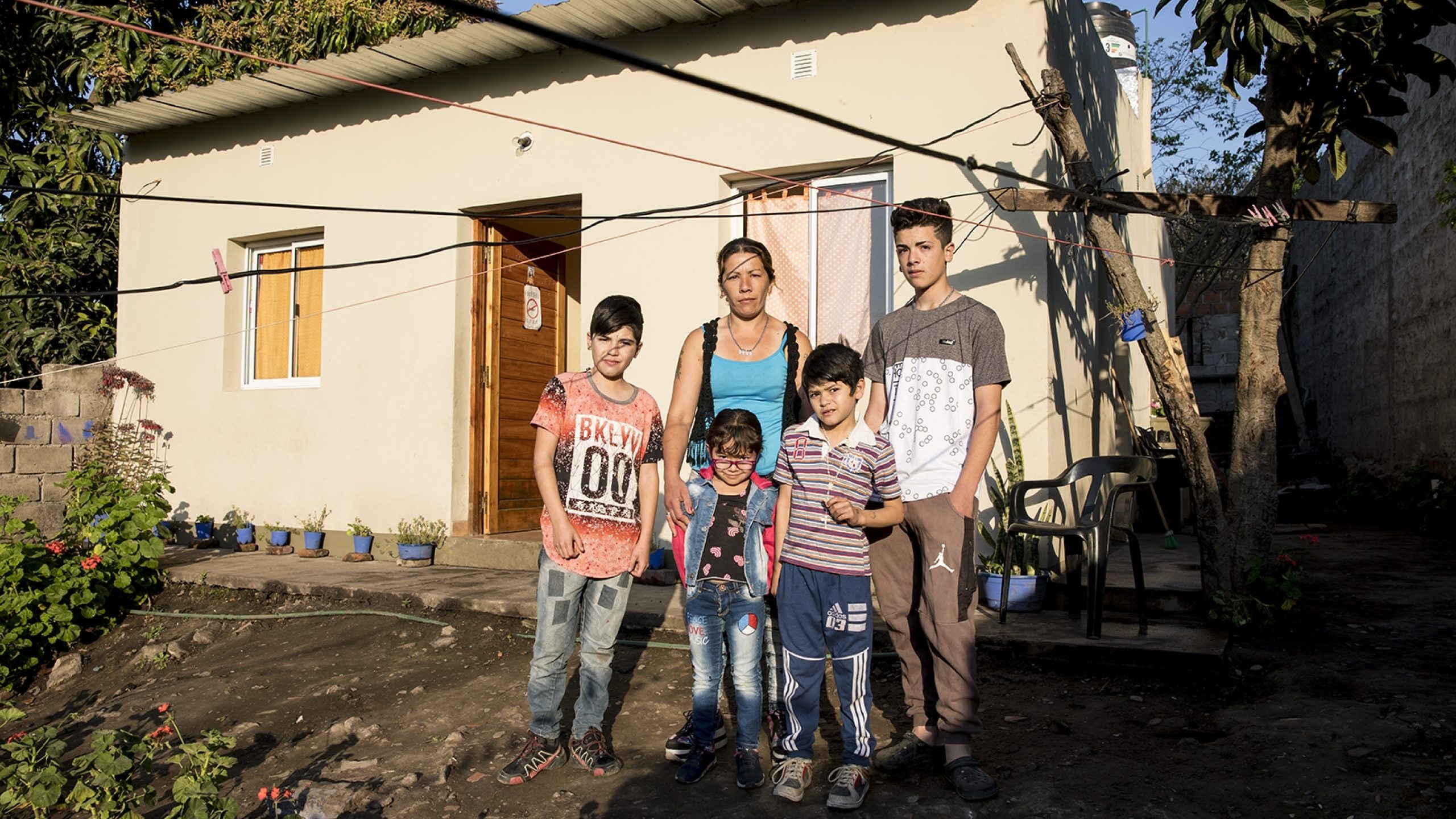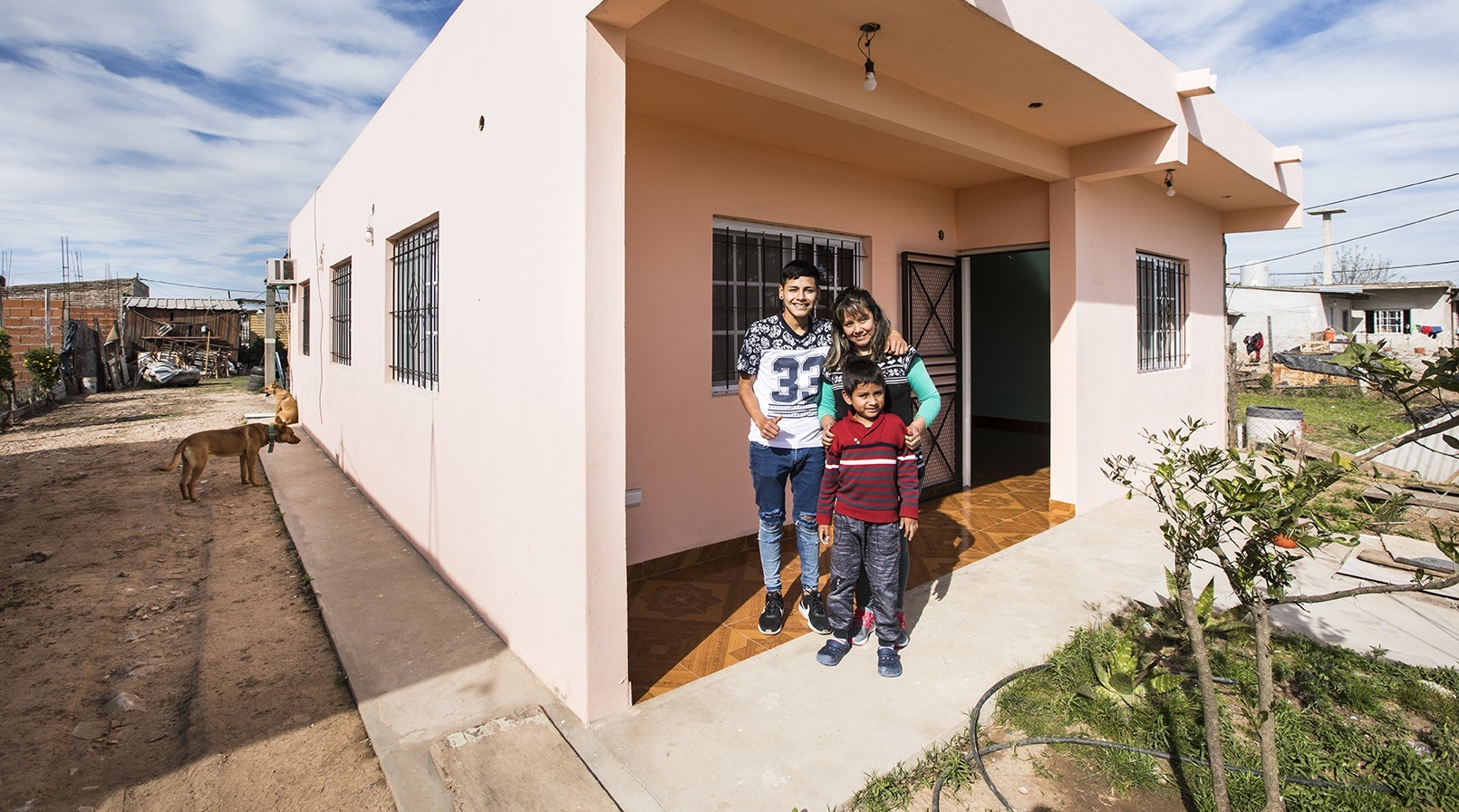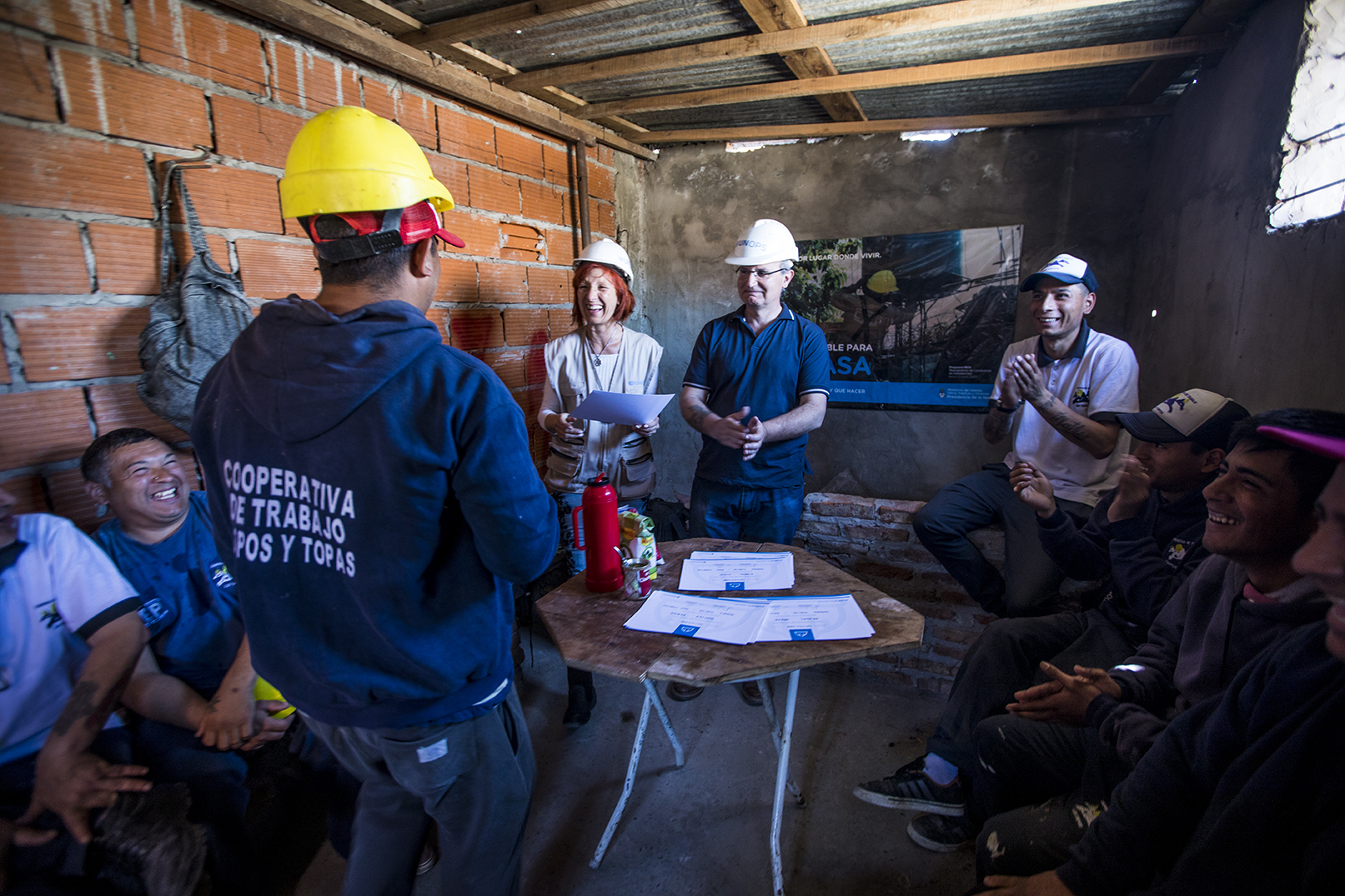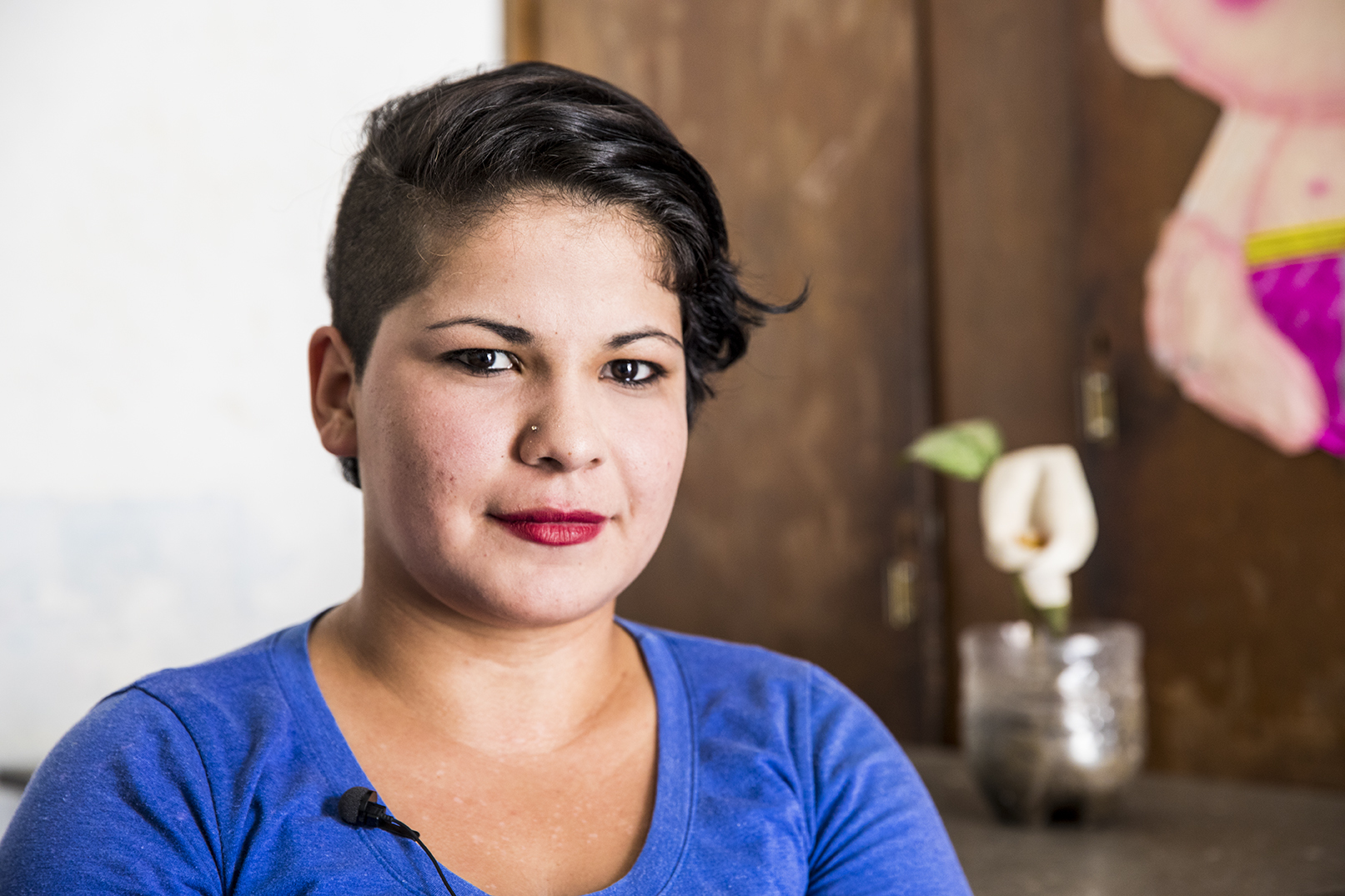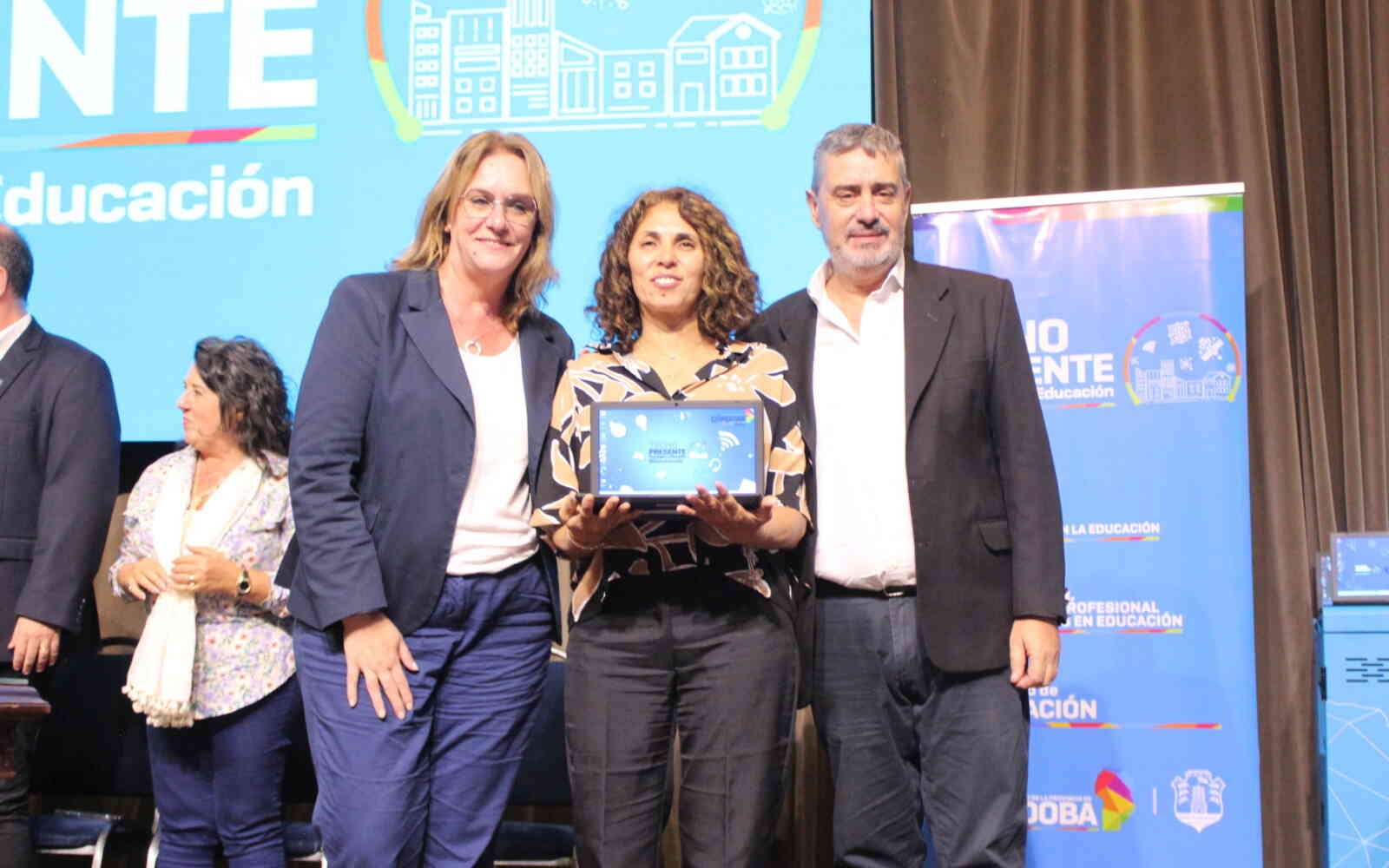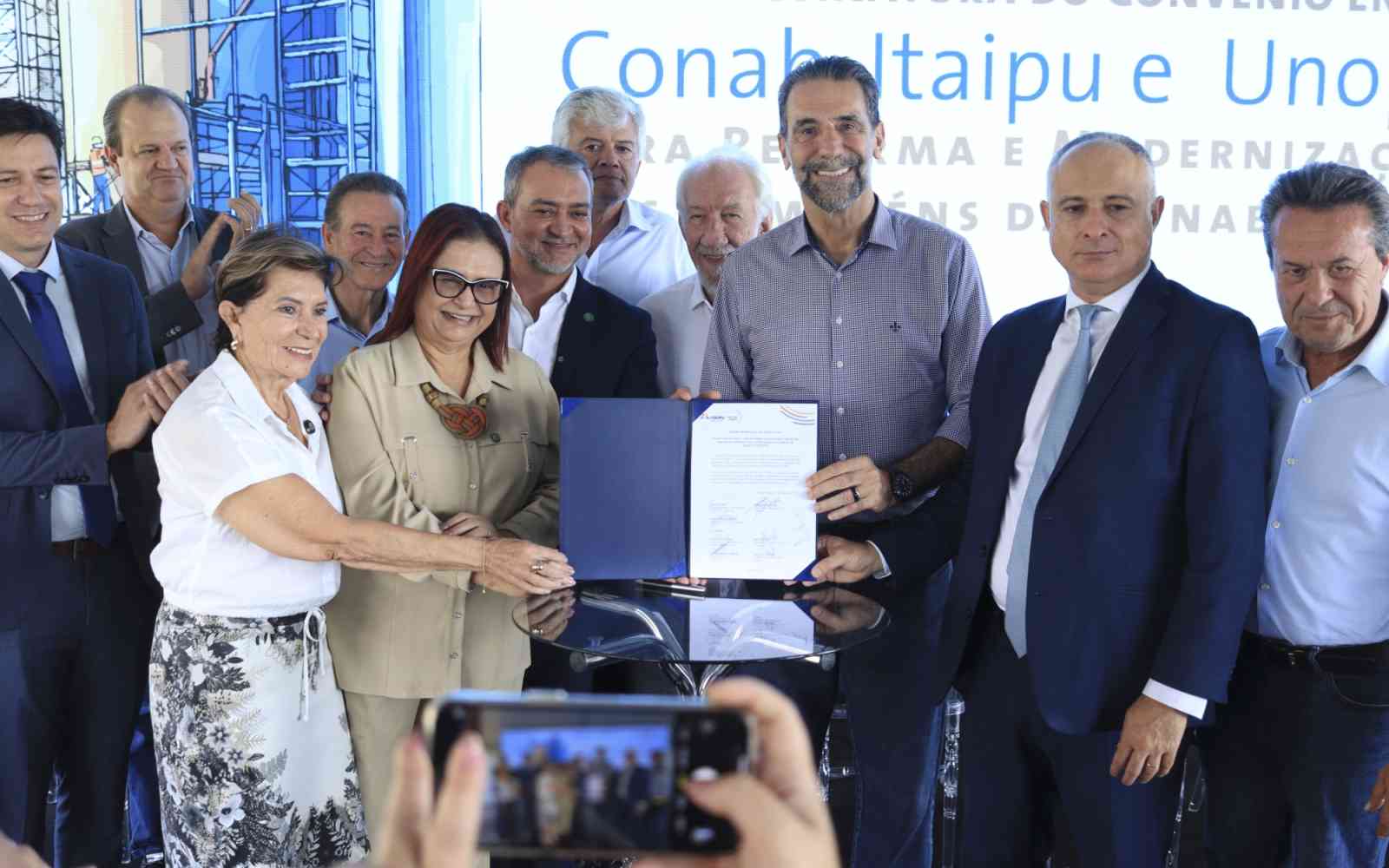The United Nations Office for Project Services (UNOPS)

To feel safe and secure
Across Argentina, new homes are desperately needed to improve living conditions and provide a safe space for families to live and thrive.
Tucumán, in the northwest of Argentina, is one of the country’s most densely populated provinces. Precarious housing settlements are nestled around its thriving capital city, San Miguel de Tucumán. And while some areas are more prosperous than others, more support is needed for those who live in vulnerable areas.
Tucumán Province
Teresa Suárez
For 22 years, the Suárez family has lived in the municipality of Tafí Viejo in Tucumán Province. Following a devastating accident, the local government provided the family with a small house on a plot of land as a temporary solution. The house had only two beds, a small table and a couple of chairs – tight living quarters shared by up to ten family members and several pets.
“It was like a hospital,” described Teresa. “We had very little privacy.”
“[Before] when you walked into the house it felt like a precarious tent,” said Manuel Delgadino, a local social worker at Abriendo Caminos de Esperanza, a non-profit social services organization that provides support to families across Argentina. “The children were used to eating in their beds because they couldn’t all fit at the table.”
With help from the government of Argentina, Abriendo Caminos de Esperanza and UNOPS, a new house was constructed for the Suárez family. One of the most meaningful improvements has been the enhanced sense of security their new home brings.
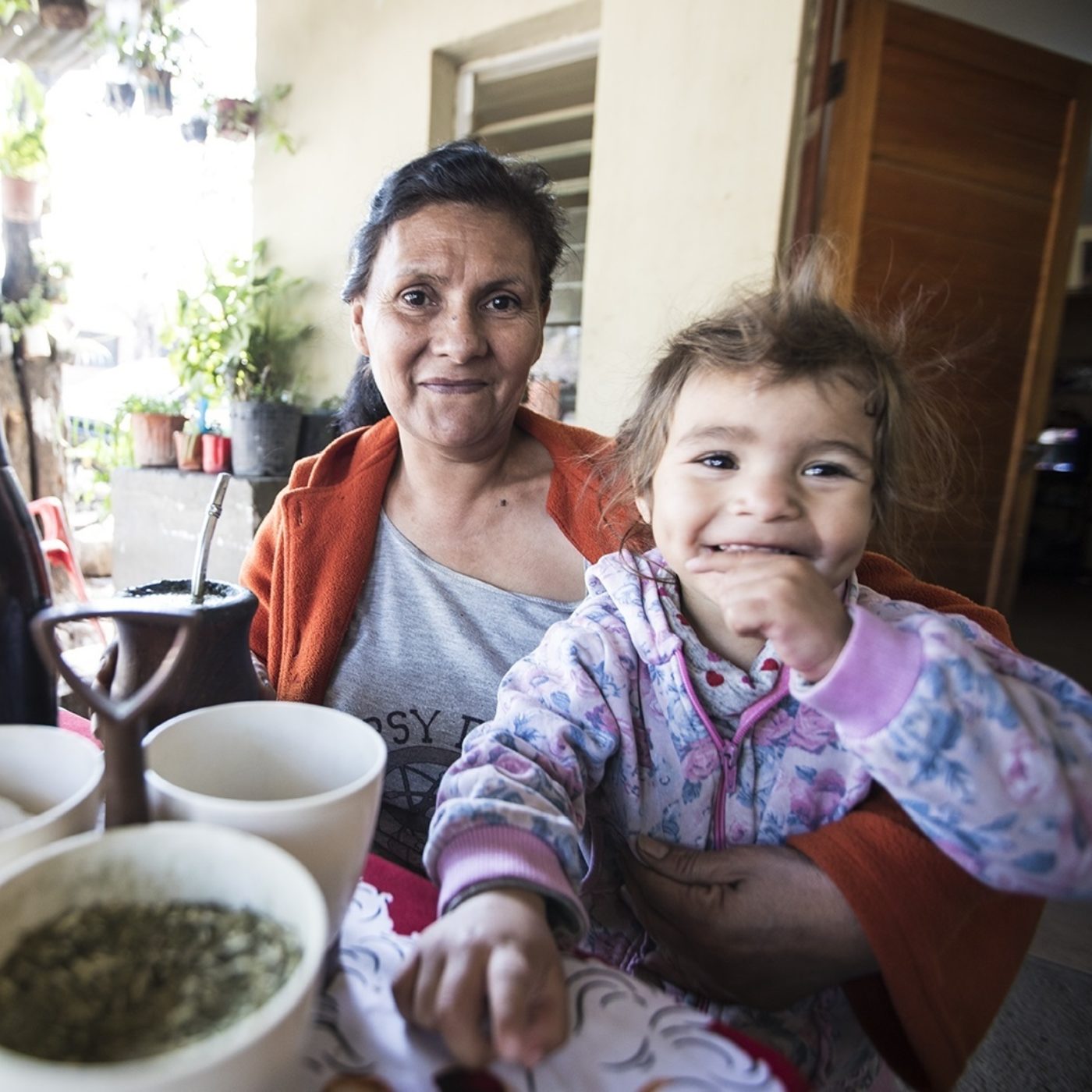
We were afraid to leave our house and worried that people would enter our home and rob us. But not anymore. Now we can go out and close the door and come home late. Before, someone always had to stay in the house.
Beyond safety and security, the new home and training provided through the programme have also changed habits. Indirectly, changes across generations are made as the young watch how their parents care for their home. “We can see a change in the family when we arrive at the house now. The children are already bathed and changed; these were things we didn't see before,” said Manuel Delgadino.
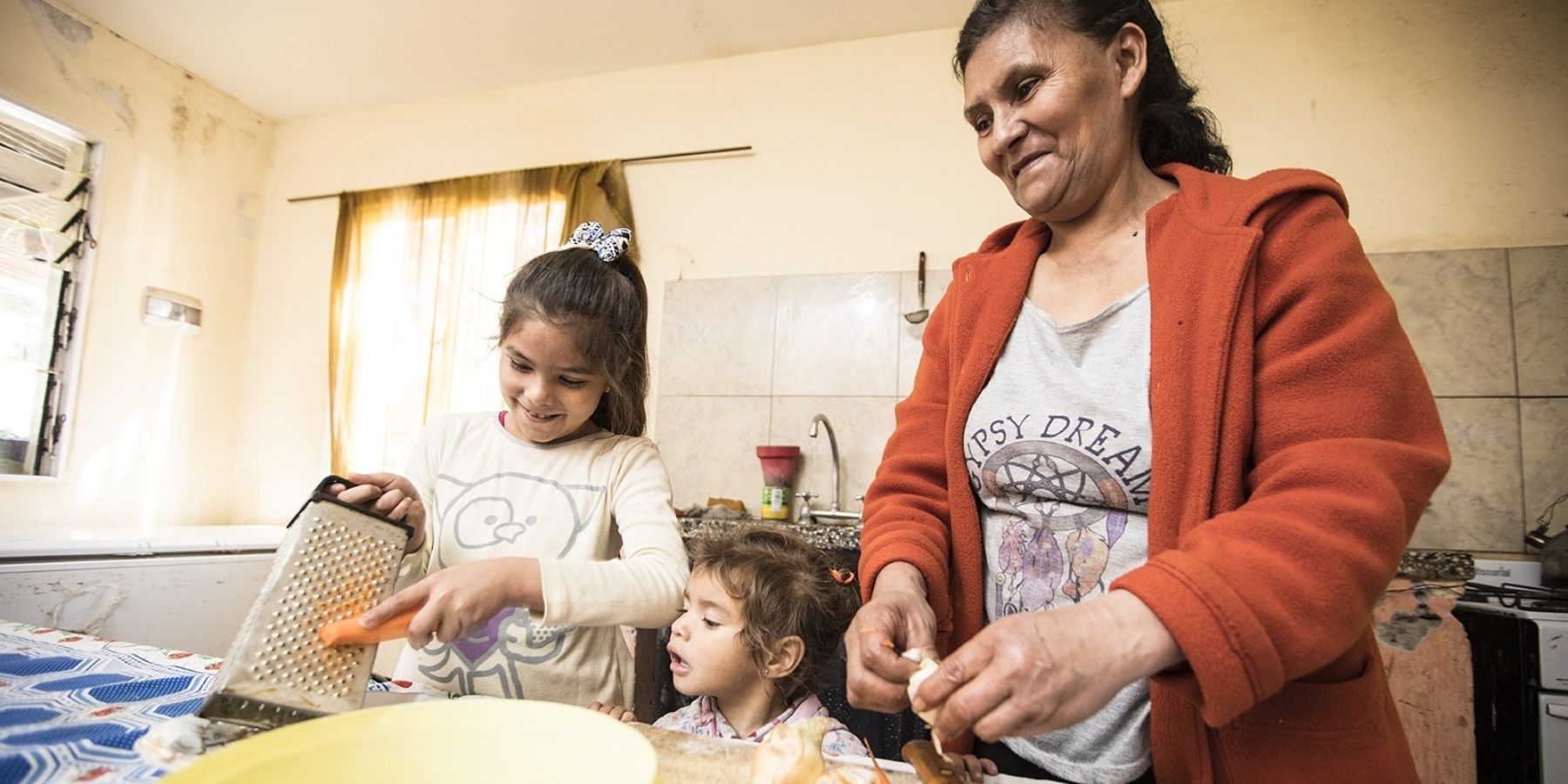



Gisella Mariela Díaz
Gisella Mariela Díaz has lived in Tafí Viejo her entire life. Until recently, she and her children lived in a makeshift home behind her mother’s house. The poor living conditions contributed to respiratory illnesses for two of her children.
“During storms, I had to call my brother to help hold down the tin walls and roof because they would fly up in the wind,” recalls Gisella. “One night, one of the boys calls me and tells me a lot of water is coming into the room. I could see the water was already rising high […] I had to make a hole in the wall to let the water out.”
Today, with the assistance provided by the social housing programme, Gisella and her family live in a safe and secure home.
Now my children are comfortable. They will no longer be cold and as the storms pass, we do not feel them anymore.



A community comes together
For Gisella, Teresa and many others, the social housing programme has provided much more than a new home – it‘s created space for new friendships and a brighter future. As an active participant in the programme, Gisella connected with other women.
I didn’t know these women before. But through the construction of the houses and the gatherings we had, we got to know each other a bit more.
Gisella’s home became a meeting place for women to come together and think of new ideas on how to earn a living and improve the community. “We would get together [...] and go out to sell bottles we made from napkins and papier mâché,” she said.
In total, 11 families were provided new homes in Tafí Viejo – many of them are single mothers who have family members living with disabilities or chronic diseases. Their homes lacked connections to basic services and suffered from poor sanitation and overcrowding.
New homes typically comprise three bedrooms, a kitchen and dining room, and one bathroom. Homes are also connected to services including electricity, water and sewage. In some cases, the homes have been specially designed to meet the needs of people living with disabilities.
“A highlight of the programme is its flexibility and how it adapts to each family,” said Rafael Salas, President of the social organization. “I know of other programmes that treat all families the same way – a housing module was provided but it did not fill the needs of children living with disabilities and they were all overcrowded.”
Working together with a local social organization allowed for a more participatory approach. Families, social workers and technical experts from UNOPS were all brought to the table and the specific needs of each family were conveyed.

“We were never treated as charity,” said Manuel Delgadino. “We were consulted in everything, included in the process and really felt like equal members.”
Work groups were formed to build the homes and were made up of family members, as well as residents of Tafí Viejo and its neighbouring community. Workshops and training sessions were also provided on construction site safety as well as hygiene and sanitation, nutrition, gardening and recycling – providing new skills, knowledge and job opportunities within the community.
Programme details
Together with the Ministry of Public Works, municipalities and community-based organizations, UNOPS is implementing an integral social infrastructure programme that aims to improve living conditions, provide improved access to basic services and enhance public spaces in lower-income areas. The programme is providing improved urbanization, housing, technical assistance and social support to communities in nine provinces across Argentina.
The programme, which is expected to benefit some 50,000 people, operates through financing assigned to local community-based organizations or municipal governments that are in charge of different infrastructure projects. Hundreds of homes are being renovated or newly constructed for vulnerable families while thousands of homes are being connected to essential services. This includes around 2,500 homes connected to water networks and around 1,400 homes connected to sewage networks. Public spaces are also being enhanced in municipalities across the country.









